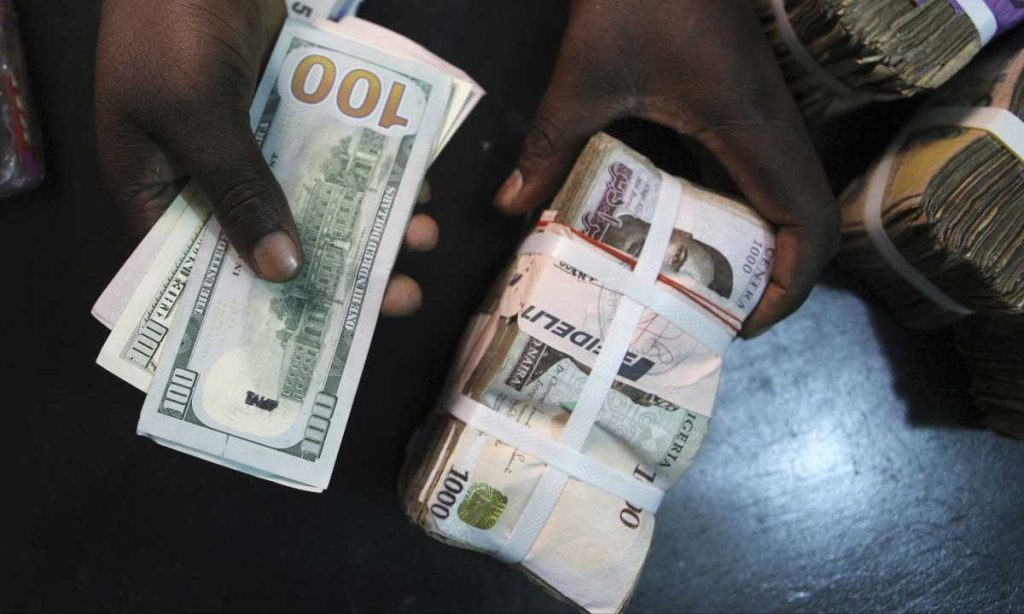Nigeria experienced a significant boost to its foreign exchange reserves in December 2024, primarily driven by the successful issuance of a $2.2 billion Eurobond. The reserves surged by $591.78 million between December 2nd and January 3rd, 2025, reaching $40.88 billion. This represents a 1.47% month-on-month increase and underscores the immediate positive impact of the Eurobond proceeds on the nation’s external financial position. The growth in reserves was a consistent trend throughout December, starting with a modest increase in the week following the bond auction and accelerating towards the end of the month. This influx of foreign currency provided much-needed liquidity, allowing the government to bolster its reserves and address pressing financial obligations, ultimately contributing to greater stability for the naira.
The increase in foreign exchange reserves is particularly notable given the challenging economic backdrop of a rising fiscal deficit and exchange rate volatility. These reserves serve as a crucial buffer against external shocks and provide the government with greater flexibility in managing external payments, including debt servicing and import financing. The substantial increase from $33.042 billion in January 2024 to $40.884 billion in January 2025, a 23.74% year-on-year growth, further highlights the government’s efforts to attract foreign capital and stabilize its external finances. This growth can be attributed to a combination of factors, including the Eurobond issuance, increased oil revenues, and strategic management of foreign exchange inflows by the Central Bank of Nigeria.
While the influx of funds from the Eurobond provides a welcome respite, the reliance on external borrowings raises concerns about the long-term sustainability of Nigeria’s fiscal policies. The accumulation of debt, coupled with the associated servicing costs, could strain government revenues and restrict fiscal flexibility in the future. Finding a balance between utilizing external financing for short-term needs and implementing sustainable fiscal policies that promote long-term economic stability is a key challenge for the Nigerian government.
Beyond the Eurobond, other factors contributed to the positive movement in Nigeria’s financial landscape. The introduction of the Electronic Foreign Exchange Matching System (EFEMS) played a significant role in stabilizing the naira. Following the implementation of EFEMS, the naira appreciated by N125 against the dollar within a month, strengthening by 8% to reach N1,535/$ on January 3, 2025, from N1,660/$ on December 2, 2024, the official launch date of the trading platform. This system, introduced by the Central Bank of Nigeria (CBN) in October 2024 and operationalized in December after a successful trial period, aimed to enhance transparency and curb speculation within the foreign exchange market.
The EFEMS specifically targets authorized dealers operating within the Nigerian Foreign Exchange Market. By facilitating a more transparent and efficient matching of foreign exchange supply and demand, the system reduces opportunities for arbitrage and speculative activities, contributing to a more stable exchange rate. This, in turn, strengthens confidence in the market and encourages legitimate transactions, fostering a healthier overall foreign exchange environment.
In summary, the confluence of the Eurobond issuance and the implementation of the EFEMS contributed significantly to strengthening Nigeria’s financial position in late 2024 and early 2025. The increased foreign exchange reserves provide a crucial buffer against external shocks and offer the government greater flexibility in managing its external obligations. The appreciation of the naira following the launch of EFEMS indicates the system’s effectiveness in promoting transparency and stability within the foreign exchange market. However, the challenge remains to ensure that these short-term gains translate into long-term economic stability and sustainable growth. The government must carefully manage its debt levels and implement sound fiscal policies to address underlying structural issues and build a resilient economy.


